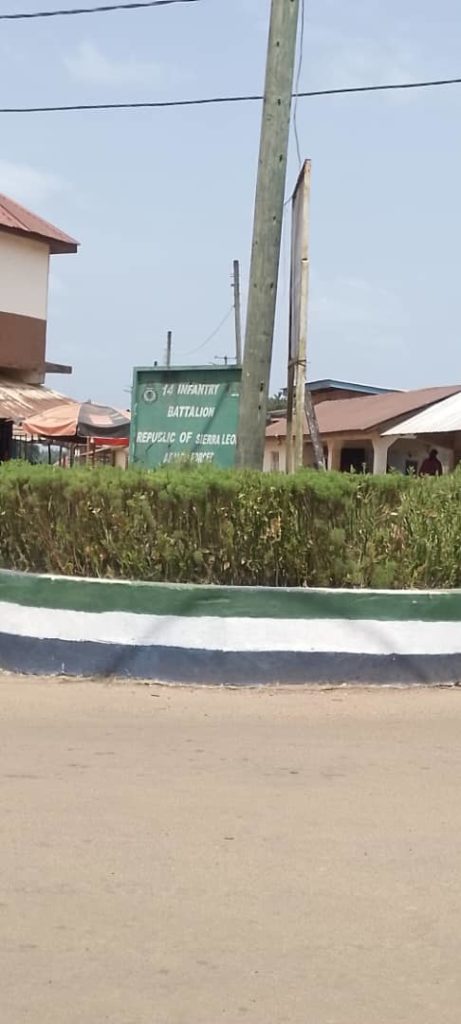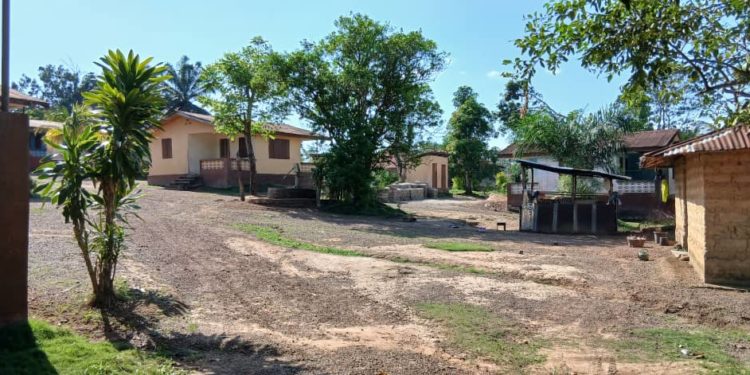By Brima Sannoh
When Joseph Bockarie Kamara left Bo in southern Sierra Leone in 2018, he believed he was chasing a dream. That dream led him through the treacherous deserts of Mali and Algeria, into the hands of Islamist militants near the Libyan border, and a two-year nightmare of detention, torture, and hunger.
“Travelling abroad had always been my dream,” Joseph says quietly. “But I never imagined it would be this way.” His story is far from unique. Kamara was among the thousands of West African migrants whose return was facilitated by the International Organisation for Migration (IOM) in 2021. Today, he serves as a community volunteer in Pujehun District, warning others about the dangers of irregular migration.“We were tortured, starved, left lying in the scorching sun because we couldn’t pay bribes,” he recounts. “By the grace of God, we survived.” But many others have not.
Kaata Koroma still holds on to hope. Her daughter, Wuya, left Bo in July 2017, believing she could find work abroad. She has not been heard from since. “I have cried. I have prayed. But none of that has brought my daughter back,” Mrs Koroma says, her voice trembling. “Some days I hope she is alive. Other days, I feel she may be gone. It’s the not knowing that breaks me.” Wuya is feared to be among the thousands of West Africans who have disappeared while journeying through desert crossings and treacherous migration routes. Since 2014, IOM’s Missing Migrants Project has recorded over 72,000 fatalities worldwide. In 2024 alone, over 8,700 people died or went missing during migration, the deadliest year on record. Africa, Asia, and Europe accounted for the highest tolls, with numbers likely underreported.
Consequently, more than two decades after the end of its brutal civil war, Sierra Leone remains a source and transit country for human trafficking. The problem persists due to weak policy enforcement, limited training for law enforcement, and deep economic hardship.
According to the IOM, at least 200 Sierra Leoneans, mostly women and children, are trafficked annually to countries across Asia, the Middle East, and Europe, often via neighbouring Guinea and Liberia. Victims are lured by false promises of work or education. Once abroad, they are exploited for sex work, forced labour, or domestic servitude. At home, children from rural provinces are moved to mining towns and cities, forced into granite breaking, trading, begging, or domestic work.
A 2018 report by a coalition of civil society organisations accused foreign-owned businesses, particularly Chinese state-affiliated fishing companies, of fuelling child sex trafficking in Freetown. These allegations have since been echoed by rights groups and local investigators. The practice of “menpikin”, or fostering children with relatives or strangers, is often used as a cover for trafficking. Children sent to neighbouring countries to beg, work on plantations, or perform domestic labour are rarely seen again.

Image, Brima Sannoh, ManoReporters.
Despite government efforts, the lack of institutional capacity remains staggering. A 2023 government report identified child sex trafficking, particularly near beaches and nightclubs, as a significant and growing concern. In some instances, desperate parents have been reported to sell their children or use them for commercial sex work to support their families.
Human rights watchdogs have further documented instances where Sierra Leonean migrants detained in Libya were sold into slavery by local militias or trafficked to the Middle East. In previous years, North Korean workers in Sierra Leone were reported to be operating under exploitative forced labour conditions, raising red flags about recruitment practices and labour trafficking.
While government and civil society actors continue to collaborate on awareness campaigns and victim support, significant gaps remain in policy implementation, inter-agency cooperation, and border monitoring. Joseph Kamara’s message to Sierra Leone’s youth is simple: “Don’t be deceived by the fantasy of life abroad. I survived, but many others haven’t. There are safer paths. Please choose them.”
This story was produced with support from the Africa Transitional Justice Legacy Fund (ATJLF), through the Media Reform Coordinating Group (MRCG), under the project “Engaging the Media and Communities to Change the Narrative on Transitional Justice Issues in Sierra Leone.”






















